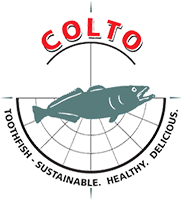Toothfish to the test
The Antarctic toothfish longline fishery in the Ross Sea is seeking recognition through the world’s leading environmental certification and eco-labelling programme for wild capture fisheries. Certification to the Marine Stewardship Council’s (MSC) environmental standard would mean that approximately 3,207 tonnes of toothfish (Dissostichus mawsoni) could be marked with the MSC’s blue eco-label, signalling to consumers that the fish has been caught in a responsible way and comes from a sustainable fishery.
The Ross Sea toothfish longline fishery is managed by the Commission for the Conservation of Antarctic Marine Living Resources (CCAMLR), which sets quotas, monitors catches and decides on technical conservation regulation. The fishery is managed as an ‘Olympic fishery’, where the fishing season is closed as soon as the quota is reached and only vessels from CCAMLR member countries are allowed into the fishing area.
The fishery is comprised of 21 vessels from nine countries. Fishing companies Argos Georgia Ltd (St Helena), Sanford Ltd (New Zealand) and New Zealand Long Line Ltd (New Zealand) have applied for the assessment of the fishery.
What Argos Georgia says
Peter Thomson, General Manager at Argos Georgia, comments: “The Ross Sea fishery is managed very conservatively and successfully by CCAMLR. In recognition of that success, we feel that MSC certification is realistically achievable as the management structure of CCAMLR provides world-leading fishery science, management policy and control measures. Various countries operate under the CCAMLR licensing arrangement in the Ross Sea and our group of three fishing companies is open to other parties interested in developing a MSC-certified fishery there.”
What the MSC says
Duncan Leadbitter, the MSC’s Director for the Asia-Pacific Region, welcomes the news: “In the case of a sensitive and vulnerable species such as toothfish, the transparent and robust nature of the MSC programme is critically important. By engaging stakeholders and conservation experts in the assessment there is an opportunity to ensure this fishery is implementing the best ecosystem-based management available, in line with CCAMLR guidance. This helps raise conservation awareness among toothfish fisheries and uses market incentives to promote and support sustainable practices.”
